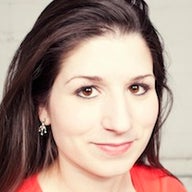Books | Night owls

 One facet of adulthood is when someone who actively avoids sleep suddenly seeks it. Kids despise bedtime. Teens curse curfew. College students will do anything to stay awake finishing a paper. My personal repertoire included coffee, Red Bull, Adderall (once), a two-pack-a-night gum habit, rewarding myself with food, compelling myself to burn off the calories, hardback chairs, constricting shoes and (on an especially dire night) putting ice cubes in my bra. After a couple years of commutes or a couple kids, "I’ll sleep when I’m dead" becomes "I’ll die without sleep."
One facet of adulthood is when someone who actively avoids sleep suddenly seeks it. Kids despise bedtime. Teens curse curfew. College students will do anything to stay awake finishing a paper. My personal repertoire included coffee, Red Bull, Adderall (once), a two-pack-a-night gum habit, rewarding myself with food, compelling myself to burn off the calories, hardback chairs, constricting shoes and (on an especially dire night) putting ice cubes in my bra. After a couple years of commutes or a couple kids, "I’ll sleep when I’m dead" becomes "I’ll die without sleep."
An unnerving sleepwalking incident galvanized journalist David K. Randall to write Dreamland: Adventures in the Strange Science of Sleep (Norton, $25.95), ranked 26 on The New York Times bestseller list for hardcover nonfiction. We all have anecdotes about friends or family who’ve acted bizarre while in a stupor. Randall chose a relatable topic with widespread appeal. The 13 clear-cut chapters read easily, citing modern studies and debunked sleep theories without forced scientific jargon.
"Sleep wasn’t something that we were supposed to worry about in the first years of the twenty-first century," Randall writes, explaining that medical professionals know little about why sleep is necessary. Although one-third of our day is (ideally) devoted to slumber, "…the importance of sleep likely hovers somewhere near that of flossing in most of our lives: something we are supposed to do more often but don’t."
Rejoice, hypochondriacs — there are plenty of real things that can go wrong during sleep. New parents can accidentally suffocate their babies if they share a bed. Several high-profile cases have invoked sleepwalking as a defense of violent crimes. Millions of Americans have sleep apnea, where their throats close, cutting off oxygen for up to a minute at a time. Car accidents are frequently caused by drivers who fall asleep at the wheel. A tired pilot can endanger hundreds of people at once.
Sleep’s benefits far outweigh the hypothetical hazards. Arianna Huffington gave a 2010 Ted Talk about the importance of sleep. Specific mattresses and pillows and resting positions are debated vigorously. Late night infomercials promote an array of sleep aids (though quixotically, if a person placed an order and was satisfied with the product, wouldn’t that deter the former insomniac from watching future late night infomercials?)
Since sleep has seized so much of the national conversation, Dreamland's timing is fortunate for Randall, a financial reporter at Reuters who previously wrote about local government, infrastructure and unicyclists (!) for The New York Times (he is also an adjunct professor of journalism at NYU; I graduated from the program before he joined the faculty).
His prose reminds me of Malcolm Gladwell’s earlier books, where chapters begin with vague descriptions of regular-seeming individuals or circumstances before revealing why they are being written about and what dilemma they encapsulate. Books like these consistently leave me longing for details — what do we learn about most interview subjects? Their hair color/length/balding status, and if they wear glasses.
This is quite nitpicky, but when the attention shifts away from Randall early in the book, it’s distracting when he — the fly-on-the-wall scribe — inserts himself back into the story, often in a non consequential way. Example: "I spent a sunny afternoon with [professor G. William] Domhoff in Santa Cruz, sitting in a [now closed] Yogurt Delite on the Pacific Coast Highway and talking about dreams…Domhoff said, dipping his spoon into his yogurt…I said, my mouth full of yogurt." Such inclusions are irksome, especially when Randall is a hard news writer with an economy of words — he knows an impulse buyer isn’t going to pick up a tome, even if the cover contains pleasant words like "Dreamland" and "Adventures" on a pillow aloft in the clouds. Also, the chapter titles — "Between the Sheets," "Sleep on It," "Counting Sheep" — are cutesy and unimaginative.
Bêtes noires aside, Dreamland is filled with useful information I’ve been quoting all week. When East Coast and West Coast sports teams meet, the latter has a biological advantage — the circadian rhythms of our bodies mimic 24-hour clocks, so when athletes from the pacific time zone travel east, they're extra energized at game time. Apparently, there’s a major movement for couples to sleep in separate beds. Nighttime artificial light can be a health risk — women living in well-lit neighborhoods are more often diagnosed with breast cancer.
Randall asks good questions, remaining unbiased unless he sees an obvious conflict of interest. For companies whose machines help sleep apnea patients, he writes, "…more fat in the bodies of the world’s population equals a larger number of sleep apnea cases, creating a larger customer base…"
Another incentive to add Dreamland to your bedside reading: you feel no guilt if you fall asleep mid-paragraph. I doubt Randall would take offense.
This post was originally published on Smartplanet.com